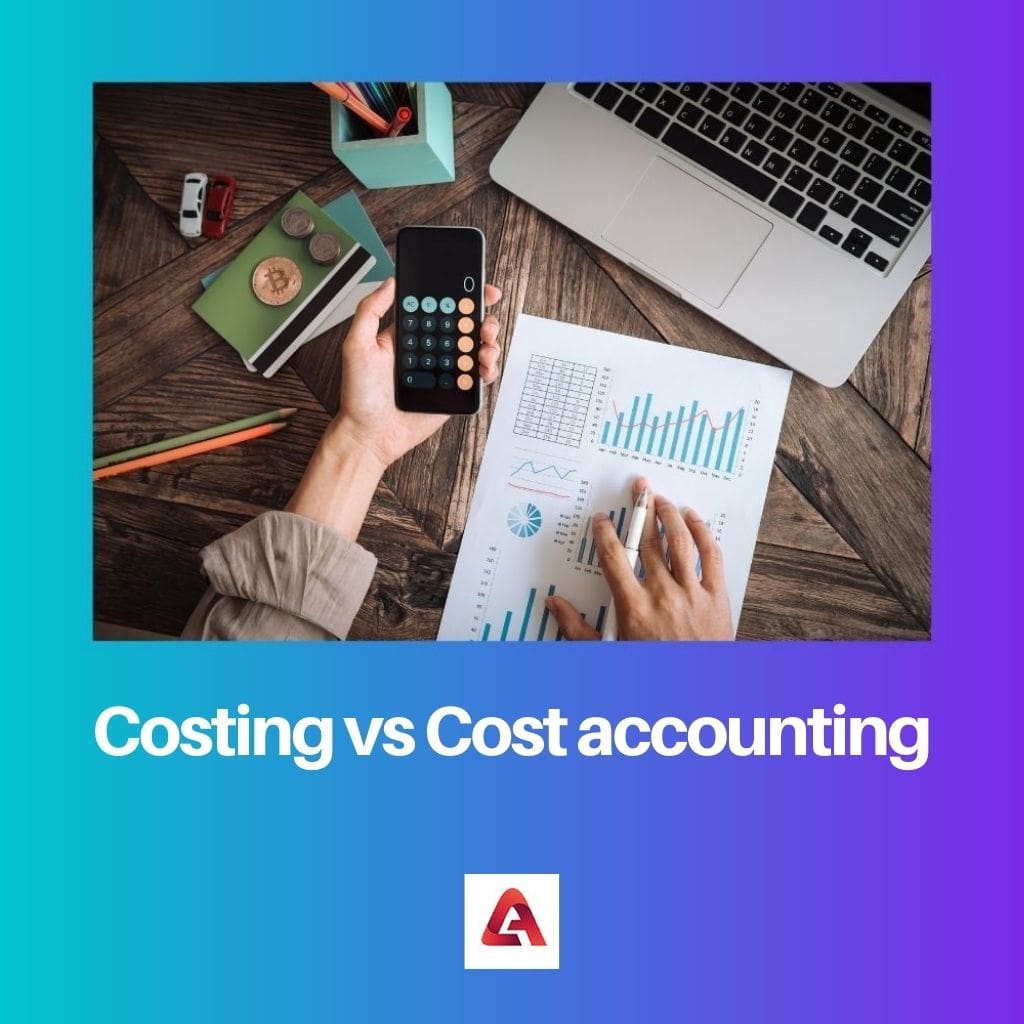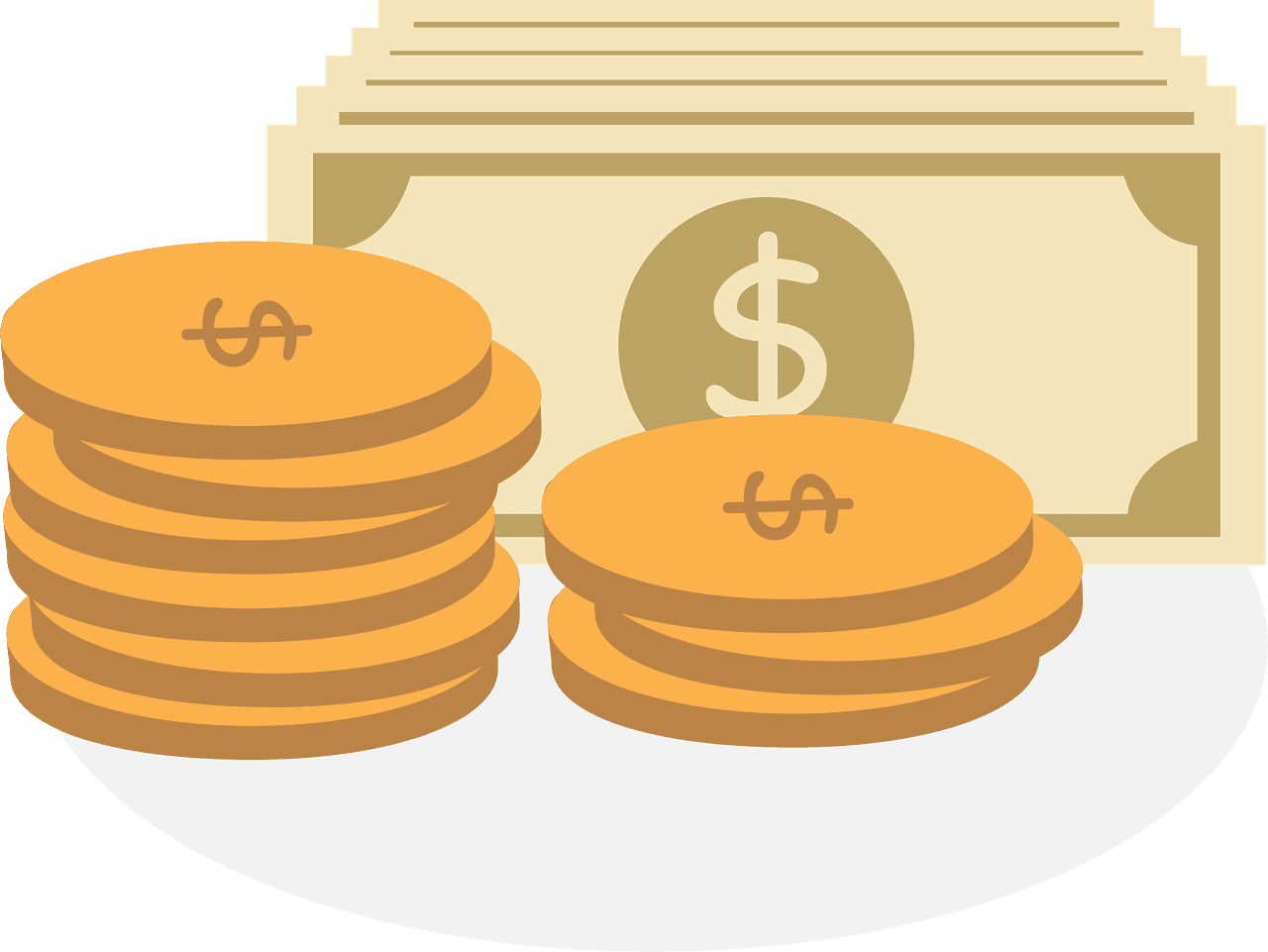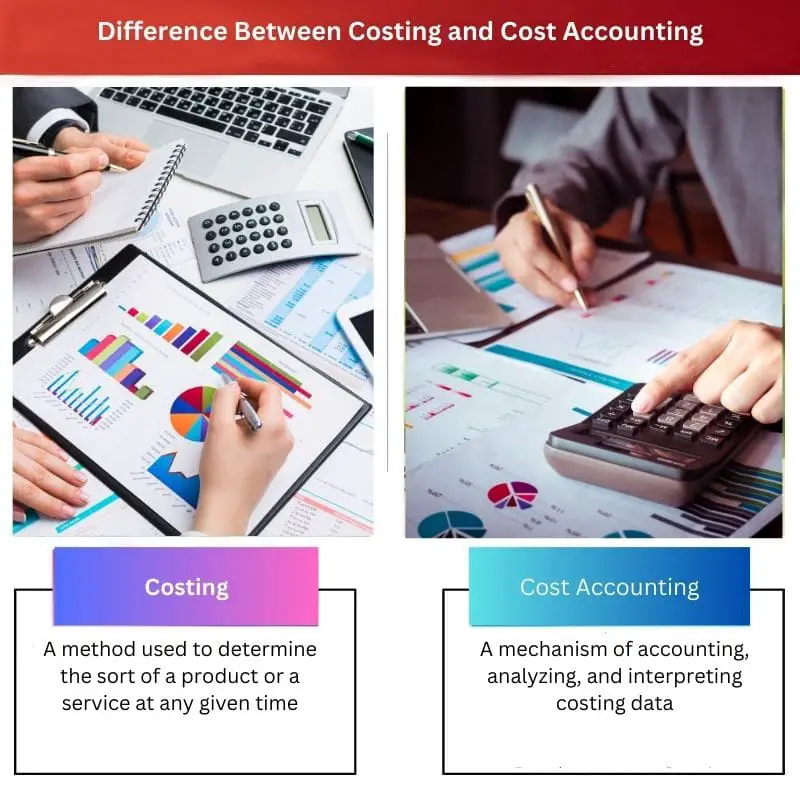Costing refers to the process of estimating the total expenditure involved in producing a product or providing a service, typically focusing on direct costs such as materials and labor. Cost accounting, on the other hand, encompasses a broader spectrum, incorporating the systematic recording, analysis, and interpretation of costs to aid in managerial decision-making, budgeting, and performance evaluation within an organization.
Key Takeaways
- Costing is determining the cost of producing a product or providing a service, considering the expenses incurred during production or service delivery; cost accounting is the systematic recording, analysis, and allocation of costs to understand and control a company’s financial performance.
- Costing is a specific activity that calculates the cost of goods and services. In contrast, cost accounting is a broader practice encompassing the management and analysis of all costs within a company.
- Cost and cost accounting is essential for effective financial management, but costing focuses on calculating specific costs, while cost accounting involves the comprehensive management of costs and financial performance.
Costing vs. Cost Accounting
The difference between costing and cost accounting is that costing is recognizing the cost of a product or service. In contrast, cost accounting is a mechanism for analyzing expenditures for a business.

Costing is essentially the process of asserting the prices and costs of products. It is a system of determining internal financial functioning.
Comparison Table
| Feature | Costing | Cost Accounting |
|---|---|---|
| Definition | The process of assigning costs to products, services, or activities. | A systematic approach to recording, analyzing, classifying, allocating, summarizing, and interpreting costs incurred in an organization. |
| Scope | Narrower: Focuses primarily on determining the cost of specific products, services, or activities. | Broader: Encompasses costing techniques, but also includes cost management, cost control, and cost reporting. |
| Objective | To assign accurate costs to units of production to determine profitability or pricing strategies. | To provide comprehensive cost information for various purposes, including decision making, performance evaluation, and regulatory compliance. |
| Techniques | Utilizes various costing methods like absorption costing, marginal costing, activity-based costing. | Integrates costing techniques with additional activities like budgeting, variance analysis, cost control measures, and cost reporting. |
| Outputs | Cost information specific to products, services, or activities (e.g., cost per unit, total cost). | Cost reports, cost statements, variance analyses, performance evaluations, and recommendations for cost control. |
| Users | Primarily used by cost engineers, product managers, and pricing teams. | Used by a wider range of stakeholders, including management, investors, regulators, and auditors. |
| Application | Relevant for manufacturing and production companies to cost products and services. | Applicable to all organizations regardless of industry, but particularly crucial for manufacturing, service industries, and organizations with complex cost structures. |
What is Costing?
Definition of Costing
Costing refers to the process of determining the total expenditure incurred in the production, acquisition, or provision of goods and services. It involves the identification, measurement, allocation, and analysis of costs associated with various activities within an organization. By accurately assessing costs, businesses can set competitive prices, optimize resource utilization, and enhance profitability.
Components of Costing
- Direct Costs: These are expenses directly attributable to the production or provision of a specific product or service. Direct costs typically include raw materials, labor, and other expenses directly tied to the production process.
- Indirect Costs: Also known as overhead costs, these are expenses that cannot be directly attributed to a particular product or service but are incurred in the overall operation of the business. Indirect costs may include utilities, rent, depreciation, administrative salaries, and maintenance expenses.
- Fixed Costs: These are costs that remain constant regardless of the level of production or sales volume. Examples of fixed costs include rent for facilities, insurance premiums, and salaries of permanent staff.
- Variable Costs: Variable costs fluctuate in direct proportion to changes in production levels or sales volume. Common variable costs include raw materials, direct labor tied to production output, and sales commissions.
- Semi-Variable Costs: Semi-variable costs contain both fixed and variable components. They may include elements that remain constant up to a certain level of activity but increase or decrease beyond that threshold. Examples include utilities with a base rate plus usage charges and salaries with a fixed portion and a commission or bonus component.
Importance of Costing
Costing plays a pivotal role in several aspects of business management and decision-making:
- Profitability Analysis: By accurately determining costs, businesses can assess the profitability of products, services, or projects. This information is crucial for setting prices, identifying cost-saving opportunities, and maximizing profit margins.
- Budgeting and Planning: Costing provides essential data for budgetary planning and forecasting. It helps businesses allocate resources effectively, set realistic financial targets, and monitor expenditure to ensure adherence to financial goals.
- Performance Evaluation: Costing enables businesses to evaluate the efficiency and effectiveness of their operations. By comparing actual costs against budgeted or standard costs, organizations can identify areas for improvement, implement cost-control measures, and enhance overall performance.

What is Cost Accounting?
Definition of Cost Accounting
Cost accounting involves the process of collecting, analyzing, and reporting information related to the costs of producing goods or services within an organization. It goes beyond traditional financial accounting by providing detailed insights into the various components of costs, their behavior patterns, and their impact on profitability. Cost accounting techniques enable businesses to allocate costs accurately, control expenses, and make informed decisions to enhance efficiency and competitiveness.
Components of Cost Accounting
- Cost Classification: Cost accountants categorize expenses into various classifications based on their nature, behavior, and function. Common classifications include direct costs, indirect costs, fixed costs, variable costs, and semi-variable costs. This classification facilitates better cost analysis and management.
- Cost Accumulation: Cost accountants gather and accumulate costs associated with different aspects of production, such as materials, labor, and overheads. This process involves tracking expenses at each stage of the production process to determine the total cost of producing goods or services.
- Cost Allocation: Cost allocation involves assigning indirect costs to specific cost objects, such as products, services, departments, or projects. Techniques like activity-based costing (ABC) help allocate overhead costs more accurately by identifying cost drivers and linking them to cost pools.
- Cost Analysis: Cost accountants analyze cost data to identify cost drivers, trends, and variances. They compare actual costs against budgeted or standard costs to assess performance and identify areas for improvement. Cost analysis also helps businesses evaluate the profitability of products, services, or activities.
- Cost Control: Cost accounting aids in cost control by implementing measures to manage and reduce expenses. Through variance analysis and performance evaluation, businesses can identify cost-saving opportunities, streamline operations, and optimize resource utilization.
Importance of Cost Accounting
Cost accounting offers several benefits to organizations:
- Strategic Decision-Making: Cost accounting provides managers with valuable information for making strategic decisions related to pricing, product mix, outsourcing, and investment. By understanding the cost structure of their operations, businesses can make informed choices to enhance profitability and competitiveness.
- Performance Evaluation: Cost accounting enables businesses to evaluate the efficiency and effectiveness of their operations. By comparing actual costs with budgeted or standard costs, managers can assess performance, identify deviations, and take corrective actions as needed.
- Budgeting and Planning: Cost accounting plays a crucial role in budgetary planning and forecasting. It helps businesses allocate resources effectively, set realistic financial targets, and monitor expenditure to ensure adherence to financial goals.
- Cost Transparency: Cost accounting provides transparency into the cost drivers and cost structure of an organization. This transparency helps stakeholders, including management, investors, and regulators, understand the financial health and performance of the business.

Main Differences Between Costing and Cost Accounting
- Scope:
- Costing primarily focuses on estimating the total expenditure involved in producing a specific product or providing a service.
- Cost accounting encompasses a broader range of activities, including the systematic recording, analysis, and interpretation of costs, as well as their allocation and control throughout an organization.
- Functionality:
- Costing is more concerned with the determination of costs associated with individual products or services, often focusing on direct costs like materials and labor.
- Cost accounting involves a more comprehensive approach, providing insights into the overall financial performance of an organization through activities such as budgeting, variance analysis, and performance evaluation.
- Purpose:
- Costing primarily serves the purpose of estimating and evaluating costs to assist in pricing decisions and assessing the profitability of specific products or services.
- Cost accounting serves multiple purposes, including strategic decision-making, performance evaluation, budgeting, and cost control, to support overall financial management within an organization.

- https://doc1.bibliothek.li/aaw/FLMF019840.pdf
- https://www.cfoconsult.nl/wp-content/uploads/2012/10/ABC-support-document_Study-Unit-2.pdf

The article’s detailed explanation of costing and cost accounting provides valuable insights into the fundamental differences and purposes of these practices.
The detailed breakdown of what costing and cost accounting entail is truly enlightening. Understanding these concepts is crucial for businesses’ financial planning and performance evaluation.
It’s evident from the article that costing and cost accounting are both essential elements in effectively managing a company’s financial performance. Understanding the intricate details of each practice becomes crucial for successful financial planning and decision making.
Agreed, Williams Harry. The detailed comparison and explanations provide a clear understanding of the roles and applications of costing and cost accounting in business operations.
Absolutely, Williams Harry. The article does a commendable job of emphasizing the significance of these practices in the overall financial management of a business.
The clear distinction between costing and cost accounting provided in the article is extremely valuable. It offers a comprehensive understanding of the roles of both practices in managing costs and analyzing financial data.
Absolutely, Zoe99. It’s crucial for businesses to recognize the differences between costing and cost accounting to effectively utilize these practices for financial management.
Agreed, Zoe99. The article does an exceptional job of clarifying the nuances between these financial practices, shedding light on their distinct contributions to companies’ financial performance.
The article made a great point about the importance of cost accounting in management and planning. It’s evident that cost accounting goes beyond just calculating costs and has a significant role in decision-making processes.
Absolutely, Eileen Johnson. The application of cost accounting principles is indeed vital in enabling strategic planning and efficient management.
The article’s detailed explanation of how costing and cost accounting impact business functions is very enlightening. It emphasizes the importance of understanding cost allocation and cost audits for improved financial efficiency.
I couldn’t agree more, Darren45. The article effectively establishes the significance of these practices in managing costs and driving effective decision-making.
The article provided valuable insights into the role of costing and cost accounting in business operations. It’s clear that both practices play a critical part in understanding and managing a company’s financial performance.
Absolutely, Lgreen. The detailed explanation of cost assigning methods and purposes provides a comprehensive view of how financial data is utilized within a company.
Indeed, Lgreen. The understanding of cost allocation systems and cost audits through cost accounting is essential for maintaining transparency and efficiency.
I found the comparison table very informative. It effectively summarizes the key differences between costing and cost accounting in a concise manner.
The article provided a very insightful comparison between costing and cost accounting. It’s fascinating to understand the detailed processes and principles involved in each practice.
I agree, Caitlin31. The clear distinction between the two is quite helpful in understanding their individual importance in financial management.
The article effectively highlights the main differences between costing and cost accounting, shedding light on their individual contributions to companies’ financial management and decision-making processes.
Indeed, Carter Duncan. The detailed explanation of costing and cost accounting offers valuable insights into how businesses can effectively manage their financial performance and improve decision-making.
Absolutely, Carter Duncan. Understanding these financial practices is crucial for businesses to make informed decisions for cost management and efficiency.